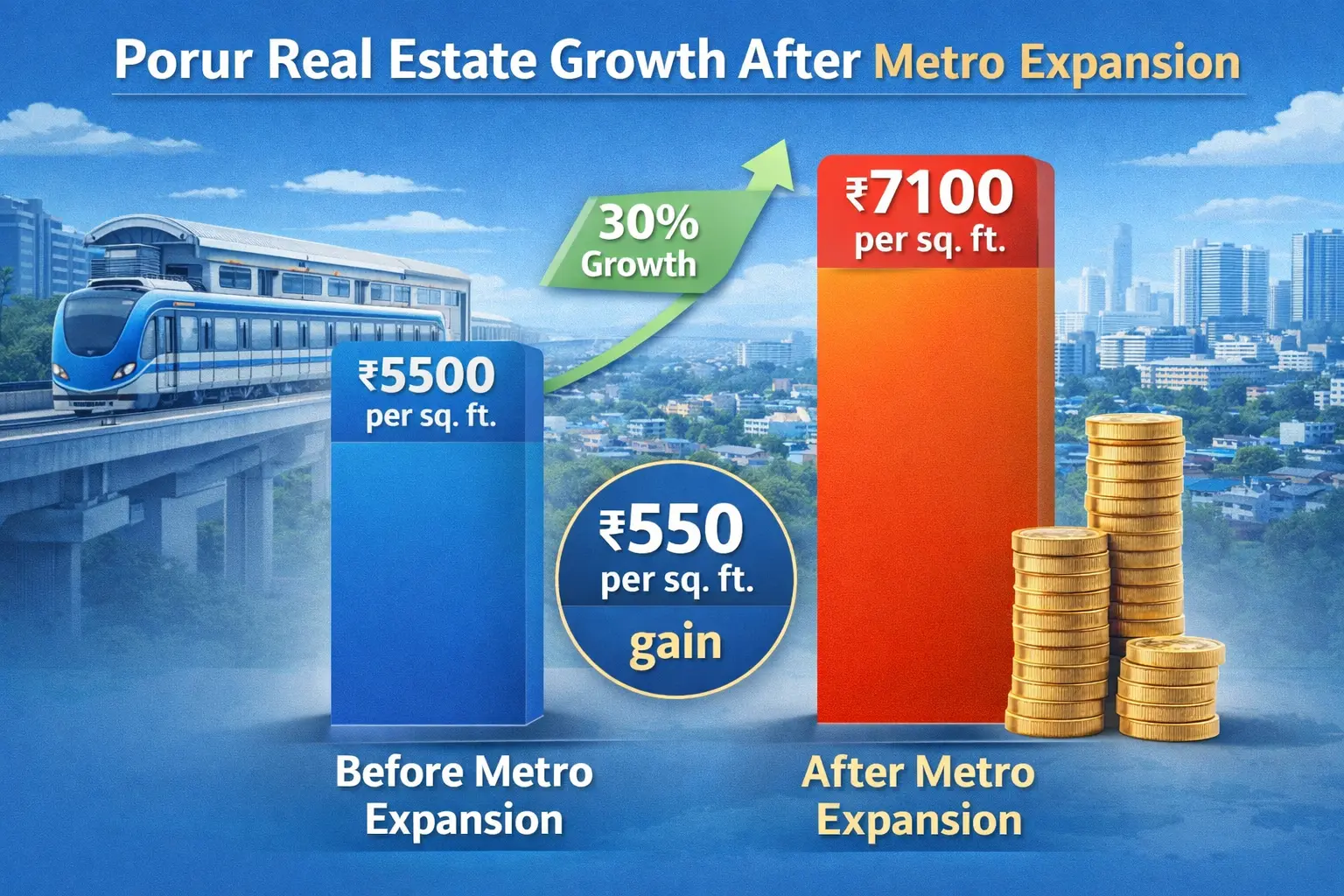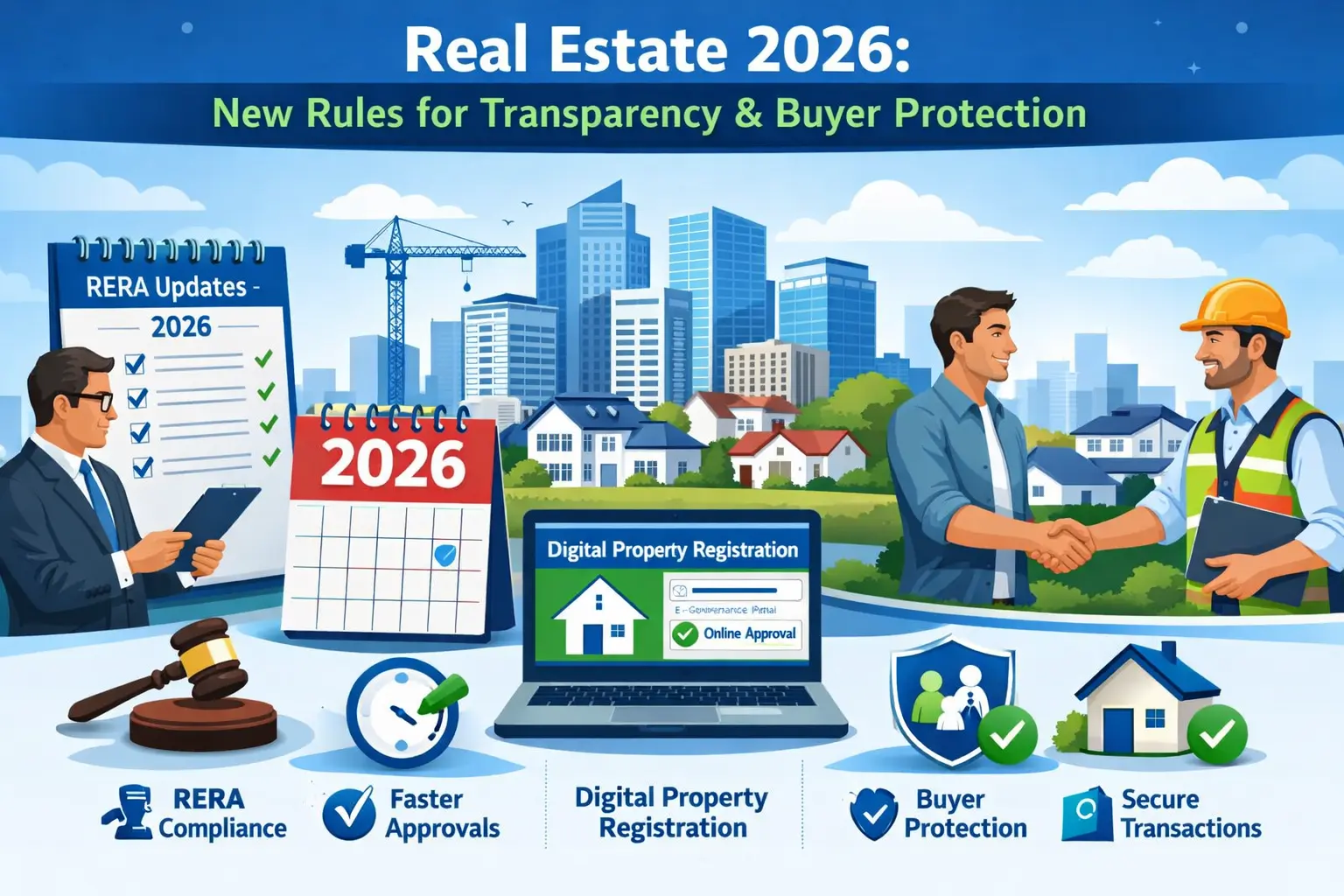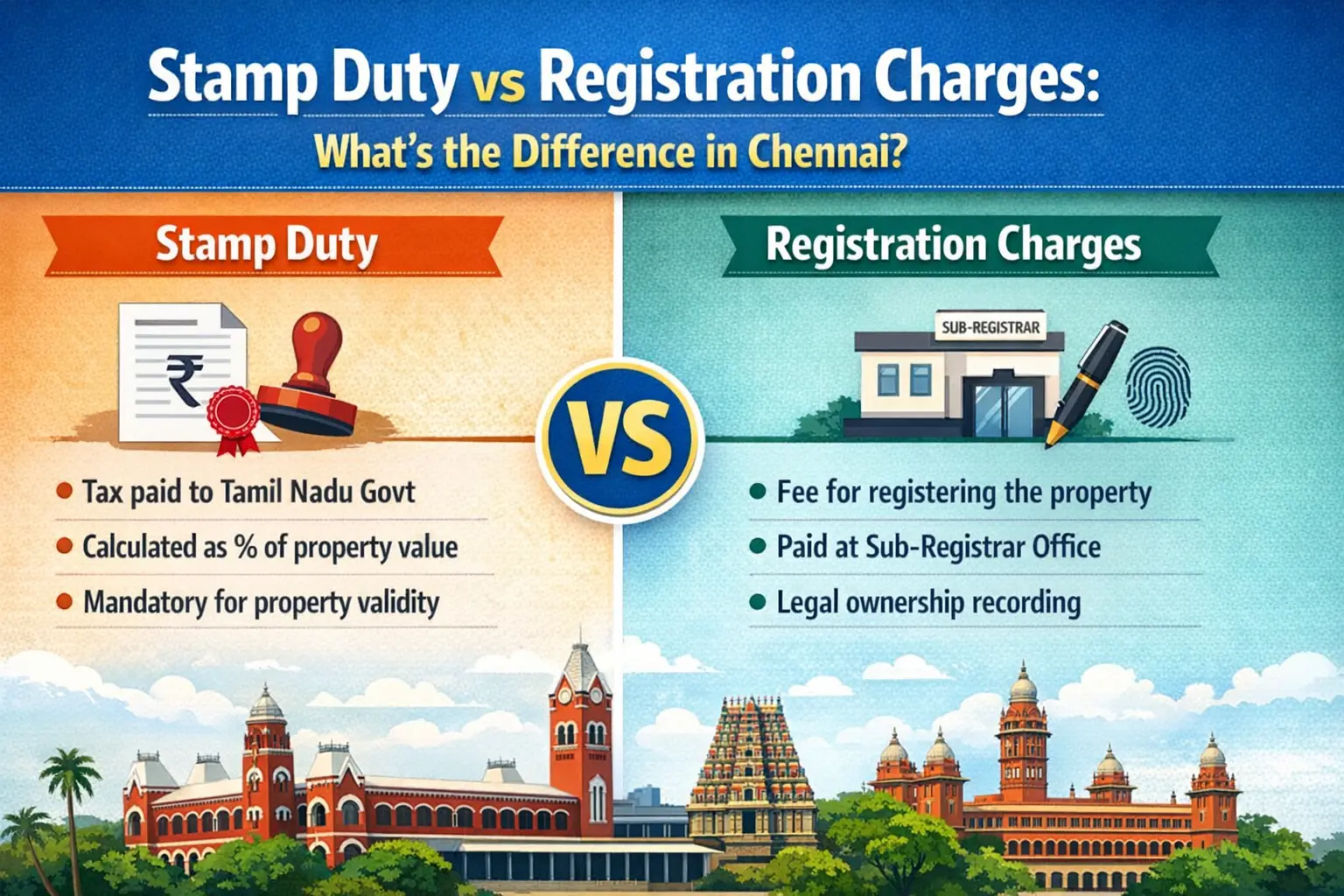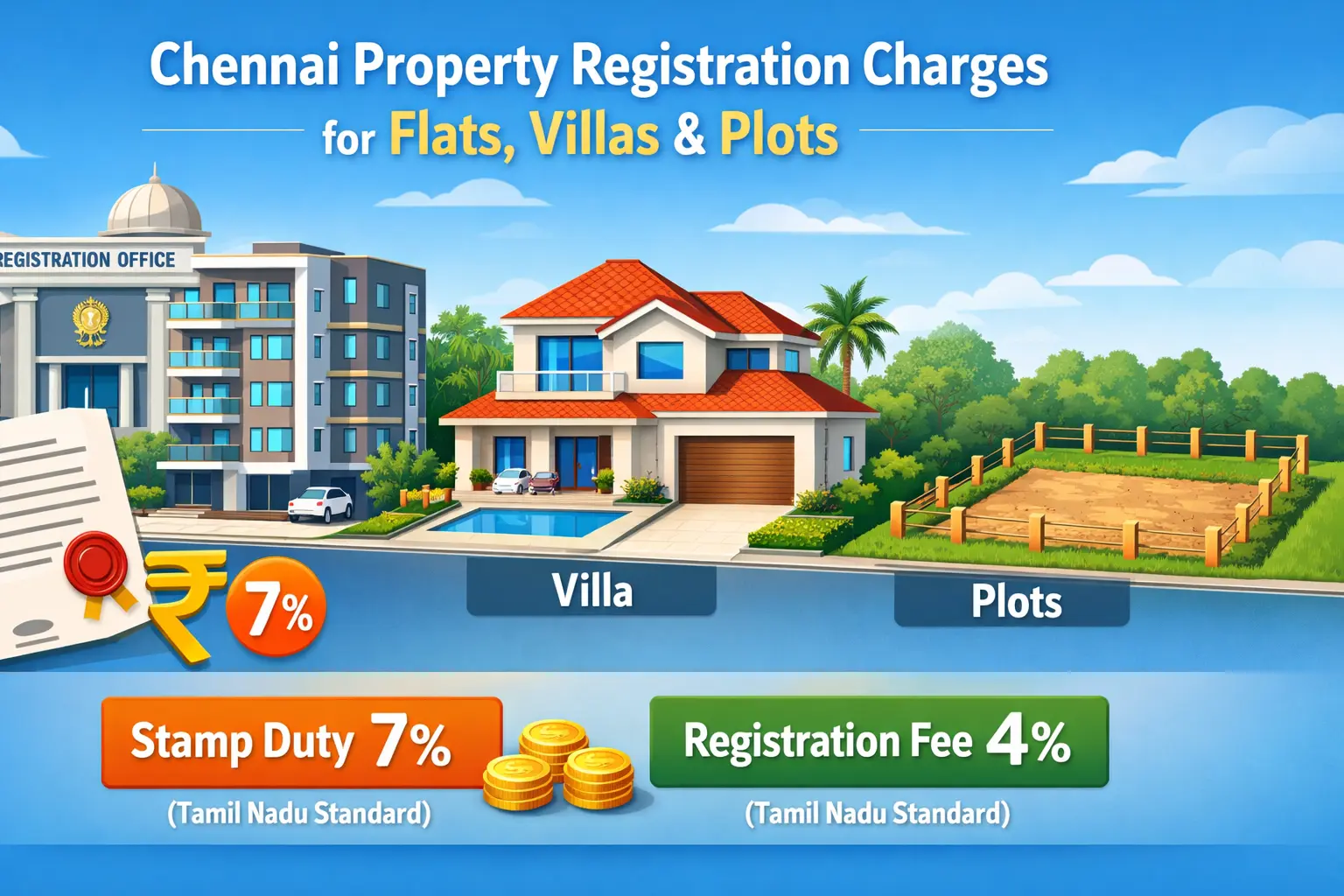What variables should we examine when buying a house?
Before you begin, the first and most important question you must ask yourself is, "Why do I need to buy the house?" or "Why not rather rent an apartment?" Because the return on rent is typically more than that of a home loan, which requires you to pay interest on the principal amount of roughly 8 to 9%. Is that correct? Because of your landlord's uncertainty or pressure, you are making this decision because he will not allow you to make lifestyle changes in your house or because you are afraid that he will ask you to move at any point.
If not, how soon do you want to move into your new home based on your circumstances? Ask these questions to help you decide if you want to move into a finished property or one that is still under construction. It should not be the case if your requirement is to move in within a year, but the contracted delivery period is two years. Aside from the building period, you must also be certain of the approximate size and specifications you require, such as 1BHK, 2BHK, 3BHK, or higher.
Once you know the size and specifications you desire, you may focus your search and determine your budget for purchasing a specific property, which will also inform you whether your preferred location is within your grasp or not. Aside from that, based on these characteristics, you can determine the numerous possibilities and offers accessible from other builders, allowing you to negotiate a better bargain with the developer.
Most people regard this as a game changer. We happen to come upon a luxurious property with all the bells and whistles, such as a balcony, deck, living area, conveniences, and so on. We almost have it finalized in our heads, but when we sit down to negotiate, it goes way above our budget. As a result, having a set budget in place is critical.
Purchasing a home is a significant long-term investment. To establish a budget cap, you must first assess your other expenses, such as auto loans, university fees or loans, monthly incoming vs. outgoing, unforeseen financial necessities, and so on.
After you've assessed your financial liabilities, you'll have a clear image of the budget range and EMI outgoings you can afford. Never go over budget because repaying the home loan might be a headache, and you may not be able to enjoy all of the luxuries and amenities.
Despite the fact that various laws have been put in place, the real-estate sector is still in the process of organizing. As a result, before purchasing the suitable home, it is critical that you conduct extensive research on the builder's profile and delve into the builder's past. You can cruise the web or go to the developer's website to learn more about the developer's reputation by looking at his previous projects that he has completed.
Check the quality of construction by evaluating the strength of the walls, kind of flooring used, type of color applied, window frames, the standard of bathroom fittings, and so on before you get sucked in by the decked-out sample flat and conclude the sale.
If you are interested in booking an undeveloped property, check online or, if possible, pay a visit to the developer's other properties that he has built recently. To learn more, you can go to the developer's project, which is nearing completion, and do a walkthrough to get a good feel of the builder's construction style and quality..
We may come across a property that has all of the features and facilities we were looking for, and it will melt your heart. It may even be less expensive than it appears and so fit within your budget. However, you must allow your mind to take over your heart and rationalize your decision by considering various nearby factors such as ease of accessibility, road conditions, property location, type of amenities, construction quality, locality, infrastructure development, or any future developments such as Metro rail, flyovers, schools, markets, and hospitals.
One of the most important considerations to consider when purchasing a home is the location's accessibility, particularly from your workplace. Examine how close and easy transportation facilities, such as stations, bus stops, and express routes, are to the property.
It is critical to account for the house's rental and potential resell worth. Not just for people who intend to rent or sell their property, but also for those who intend to buy a home and live in it for an extended period of time, if not forever. When you are finalizing the house, you must consider the future profits that can be made from the property. As a result, it's critical to learn everything there is to know about the location.
When you have completed most of the preceding points and have decided to issue the token amount, wait!!! Ensure that you have thoroughly read between the lines and comprehended all of the provisions, fines, and implications. Make sure you've factored in any additional costs, such as GST, registration fees, and home loan processing fees.
When purchasing a home, several aspects must be addressed, including the housing market, loan rates, and any future plans you may have. When you buy a house, it may be difficult to be flexible with your family or profession. You may also be unsure whether a community is suitable for long-term residence.
Another critical factor to consider when acquiring a home is the construction quality. Before you sign the contract, make sure to inspect the walls, window frames, floors, paint, bathroom fixtures, and so on.
Before placing an offer on a house, buyers should examine a variety of factors. Because every homebuyer is unique, choosing the appropriate property for you will need thinking about what you want. Before making your decision, consider the following aspects of a house:
1. Location:
Location, location, location is one of the most critical aspects of any piece of real estate. Pay close attention to the neighborhood in which you intend to purchase a home. You'll want to make certain that your property is easily accessible to your workplace. "Many people don't consider their job, especially now, as they focus on remote work," says Ethan Taub, CEO of Loanry. While many may have permanently adopted it, you may still be forced to attend meetings. Those seeking for a new work should assess whether there is something nearby that they are qualified for."
You should also evaluate the house's position within the community, since some people want to be away from busy streets, while others prefer to be closer to main arterial roads.
Homebuyers with children, or those planning to start a family, should also look into local schools. Many homebuyers consider school quality to be a deal breaker. Examine the public and private possibilities, as well as the entry and registration requirements. It's usually a good idea to be aware of the critical facts before entering.
2. Size:
The size of the property on which your house is built will influence numerous aspects of its uses and possibilities, so keep this in mind when making your purchase. The lot shape will effect your privacy, so if you have a preference for the shape of your lawn or the length of your driveway, you should think about the lot shape.
3. Bedrooms:
Each family's desired number of bedrooms will differ. If you intend to grow your family in the future, you should consider purchasing a home with more bedrooms than you now require. Extra bedrooms are useful for families who plan to entertain guests, or they can be used as office spaces. To make the best long-term and short-term buy, evaluate how you intend to use your bedroom space.
4. Bathrooms:
For many homeowners, the number of bathrooms in their home is a significant consideration. Consider how many people will use each restroom, including tourists. Would you rather have a bathtub or a shower in each bathroom? Do you care about the size of each bathroom? Is it possible to add a bathroom to the house if the need arises? When considering purchasing a home, ask yourself these crucial questions.
5. Kitchen layout:
The arrangement of the kitchen influences its functionality. If you spend a lot of time in the kitchen, you might want to consider a more open kitchen layout. If you do not cook frequently, a smaller or enclosed kitchen may suffice. Consider the value of the kitchen space for you and your family to assist guide you.
6. Appliances:
Replacing home appliances can be costly. Consider your appliance preferences as well as the age of the current equipment in your home. Upgraded appliances may be a requirement or a bonus for some homeowners, but not for others.
7. Age Of The House:
In some aspects of buying a new home, If you don't want to renovate, some houses that suit all of your criteria may have been built decades ago. The age of the property is an important consideration when purchasing a home. An older home may have its own unique character and attractiveness, but it may also require additional modifications, repairs, and improvements. If you want to buy an older house, make sure you have the time and money to do renovations. When purchasing an older home, building codes must also be considered. Codes may have changed over time, so having a rudimentary awareness of building rules from then and now might help you better assess the condition of the house.
8. Maintenance:
Include in your budget the cost of home maintenance. Some projects may be purely cosmetic and simple to perform. Other initiatives may necessitate more time and resources. The cost of repairs and maintenance will be influenced by the age and condition of the home at the time of acquisition.
9. Purchase price:
Of course, the buying price of the home will play a significant influence in determining whether or not you should buy a home. Create a budget that is appropriate for you and stick to it. Consider all fees related with making an offer and closing in order to make a decision that fits your budget and aspirations.
If you are relocating to a new area, consider the cost of living. While many homebuyers consider this while moving to different states, it might also be vital to consider if you are moving across town. What are the property taxes in that market like? Are gas prices normally the same or higher where you live now? These aspects might have a long-term impact on your finances, so pay attention before selecting your dream home.
While you are ready to become a homeowner, it is critical to identify the most crucial factors to consider while purchasing a property. As previously noted, there are various aspects to consider, including personal preparation, local market conditions, and ensuring you understand the key components of the house purchasing process. By carefully considering some of these concerns, you will ensure that you are alert and mindful when you enter the world of homeownership.
How can we calculate how much money we can put down on a house?
When taking out a home loan, it is a good idea to put down 15%-20% of the cost of a costly asset such as a house. The remaining loan amount can be repaid………To Contuine.













